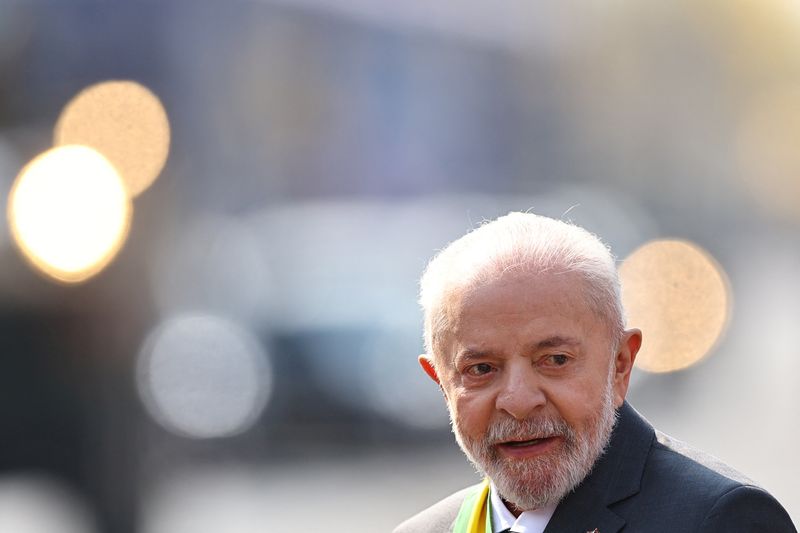BRASILIA (Reuters) – Brazilian President Luiz Inacio Lula da Silva has requested studies to ensure that by the end of 2026 an income tax exemption will be applied to earnings up to 5,000 reais ($880) a month, Finance Minister Fernando Haddad said on Thursday.
Haddad said in a radio interview that different scenarios have been put forward to meet the leftist leader’s campaign promise and one seemed politically and economically “promising”.
Workers earning up to 2,824 reais per month, equivalent to two minimum wages, are exempt from income tax.
In next year’s budget bill, Lula’s government has proposed raising the minimum wage to 1,509 reais but refrained from extending the income tax exemption to those earning up to two times this amount.
The significant expansion of the tax exemption threshold is seen as a major fiscal challenge as it would result in significant revenue loss just as the government struggles to signal a sustainable fiscal balance amid fast-paced growth in some mandatory expenditures.
Haddad said the government is committed to rebalancing public accounts, which “will allow us to pursue healthier monetary policy over time, with lower real interest rates”.
Regarding the Brazilian real, which has weakened about 14% against the U.S. dollar year-to-date, Haddad said it has been under pressure from both domestic and external challenges.
However, he expressed hope for improvements starting this month after the expected beginning of U.S. monetary easing.

Haddad noted that currency interventions could be made if necessary, adding that while the central bank has sparingly used this tool, it must be cautious in its approach.
($1 = 5.6688 reais)
